The United Nations (UN) has warned it will have to make a “heartbreaking” decision to withdraw all staff from Afghanistan next month if the Taliban do not reverse a ban on local women working for the organisation.
UN officials are negotiating with the Taliban in the hope that the Islamist government will make exceptions to a decree banning Afghan women from working for the organization, UNDP Administrator Achim Steiner told The Associated Press on April 18.
The UN has about 3,900 staff in Afghanistan, including about 3,300 Afghans and 600 international staff.
UN spokesman Stephane Dujarric said all 3,300 Afghan staff, including 2,700 men and 600 women, had been asked to stay home since April 12 but would continue working and would be paid. Of the 600 international staff at the UN, 200 women were not affected by the Taliban's decree.
“It is fair to say that we are at a point now where the entire UN system has to take a step back and reassess its ability to operate there,” Steiner said. “But that is not a negotiation about fundamental principles and human rights .”
The Taliban have allowed Afghan women to work in specific sectors such as health, education and nutrition, Steiner said, but a UN report released on April 18 said the South Asian nation needs more women to work as its economy teeters on the brink of collapse.
Extreme poverty
Afghanistan needs about $4.6 billion in foreign aid this year to prevent the situation from deteriorating further, the UNDP report said, reiterating a funding target first announced in February.
The call for donors comes as Afghanistan’s central bank reserves remain frozen by the US and Europe over concerns they will be used to fund terrorism. Last year, Washington agreed to release half of the reserves to boost the economy, but backed down at the last minute after the Taliban banned Afghan women from going to school and working.
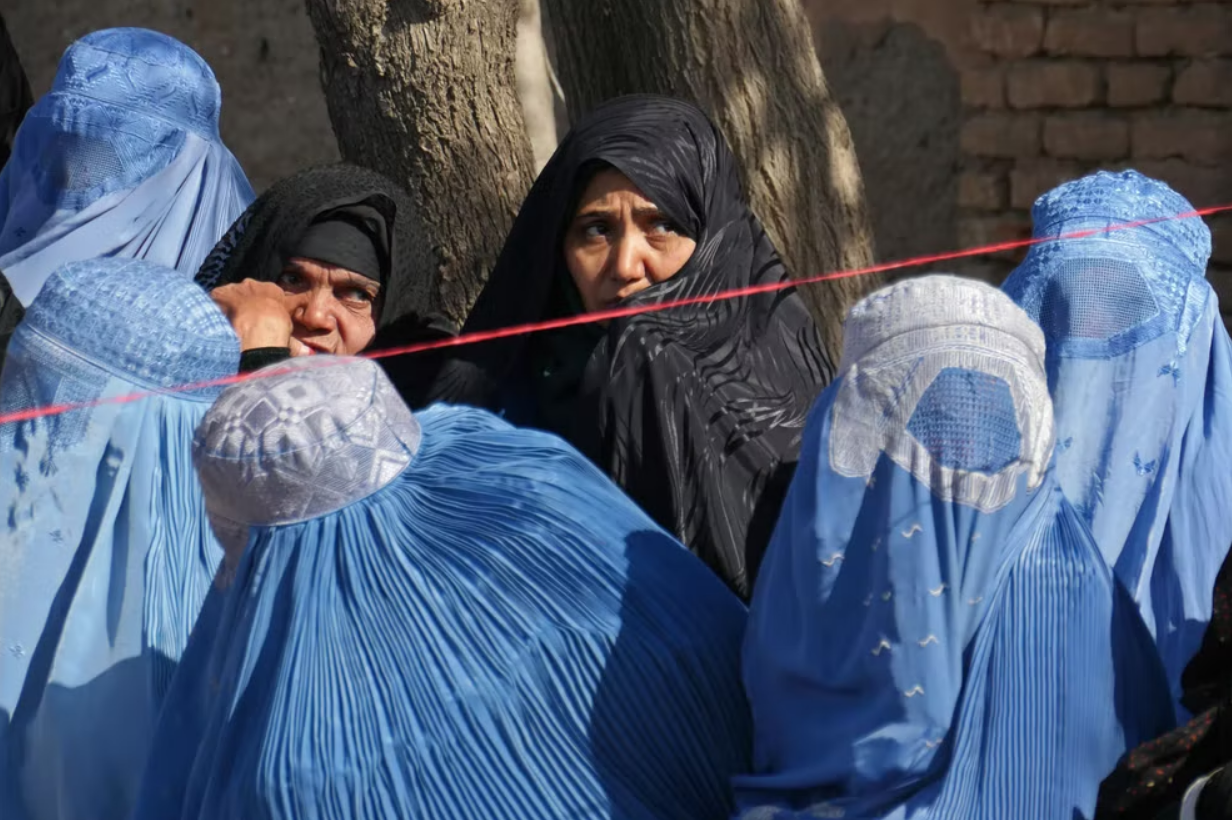
Afghan women wait to receive food aid from the Afghanistan Disaster Management Authority, in Herat. Photo: Getty Images
“Afghanistan’s economy and society are on the brink of collapse,” Abdallah Al Dardari, UNDP’s resident representative in Afghanistan, said in an interview ahead of the report’s release. “Any shock or reduction in international aid today will push a large number of Afghans into a situation that is worse than they have ever been in, and worse than they are facing today.”
According to UNDP calculations, if foreign aid continues at last year's level, Afghanistan's GDP is expected to grow by 1.3% in 2023 and 0.4% in 2024. Last year, the UN received 73% of the $4.4 billion requested, but so far this year, the organization has received only 5.4% of the $4.6 billion requested.
Despite taking power in Afghanistan more than a year ago, the Taliban government is still struggling with unemployment and rising living costs, while also dealing with infighting among its leaders over women’s education and renewed attacks from terrorist groups. The UNDP says the number of poor people in Afghanistan will rise to 34 million by 2022, up from 19 million in 2020. Afghanistan has a population of about 40 million.
The report warns of significant headwinds from adverse geopolitical factors and economic hardship in neighboring countries such as Pakistan, which could spill over to Afghanistan due to increased security risks and inflation in food and fuel imports.
“Any reduction in international aid would worsen Afghanistan’s economic prospects and prolong extreme poverty for decades,” the report said. “But the economy cannot recover if women cannot work, while future economic growth is constrained by a lack of investment in education for girls and women.”
Painful decision
In negotiations to secure a US troop withdrawal that would result in a Taliban victory, the insurgents assured Washington that they did not want to return to their repressive policies of the 1990s.
Despite initial promises of a more moderate rule than during their previous rule in the 1990s, the Taliban have imposed a harsh regime since returning to power in 2021 as US and NATO forces withdrew after two decades of war.
Afghan women are increasingly marginalized by the Taliban's bans on education and work.
“In no other country than Afghanistan are women and girls so rapidly disappearing from every sphere of public life and disadvantaged in every aspect of life,” Richard Bennet, the UN special rapporteur on the situation of human rights in Afghanistan, concluded last year.
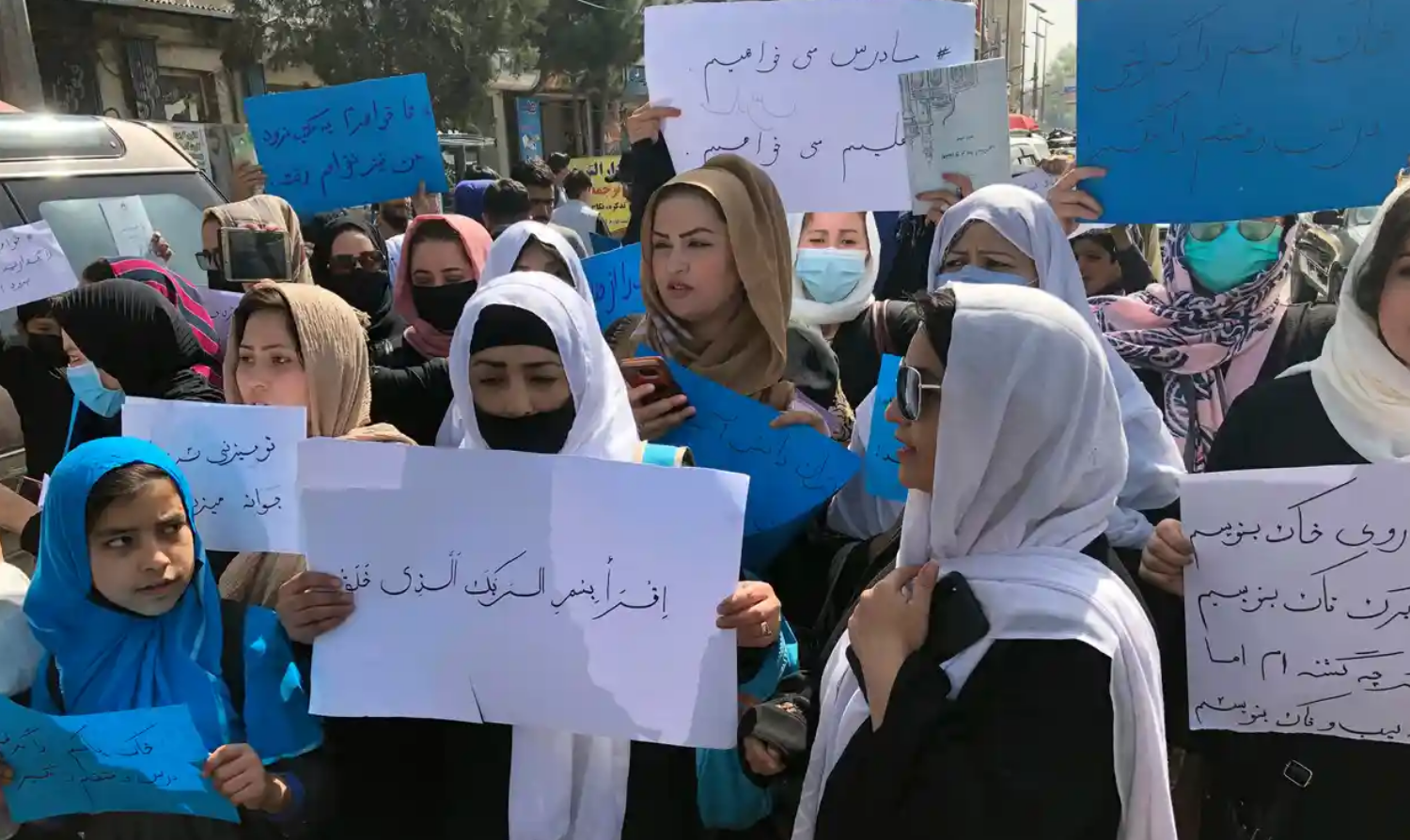
Afghan women protest in Kabul against the Taliban's decision to ban local women from working for the UN. Photo: The Guardian
As for the latest Taliban ban, Mr Steiner, the UNDP executive director, said further restrictions on female UN staff meant “a very critical moment” was approaching.
The UN official hopes they will convince the Taliban, but also insists that human rights are non-negotiable, and they will leave in May if the Taliban do not back down.
And it is not hard to predict that the departure of the UN and other international agencies could affect Afghan women and children the most.
A report from the International Crisis Group (ICG) in February said that women and girls often receive the smallest food rations in Afghan families and are more vulnerable to malnutrition and disease.
The ICG report also expressed concerns about the long-term impact of aid groups and others withdrawing. “If they leave, international actors may find it difficult to return to Afghanistan in the future,” the report said.
“Negotiating access to rural communities is not just a matter of asking the Taliban for permission; in many places, NGOs have cultivated relationships with villagers for years, even decades. Rebuilding the level of trust they now enjoy after abandoning these communities will be no small feat,” the report concluded.
“I think there is no other way to express it than heartbreaking,” Mr. Steiner said. “I mean, I imagine if the UN family were no longer present in Afghanistan today, I would have in front of me the image of millions of girls, boys, fathers, mothers, who would basically not have enough to eat . ”
Minh Duc (According to Bloomberg, The Telegraph, AP)
Source


![[Photo] Launching ceremony and drawing of pairs for the "9th TIM CUP Highland Charity Football Tournament"](https://vphoto.vietnam.vn/thumb/1200x675/vietnam/resource/IMAGE/2025/5/31/a4c145af5d1e48c5b48c95116d41a73c)




![[Photo] Prime Minister Pham Minh Chinh attends the opening ceremony of the National Law Portal](https://vphoto.vietnam.vn/thumb/1200x675/vietnam/resource/IMAGE/2025/5/31/f02ed6288a4340bdb4adf1b2149b9614)
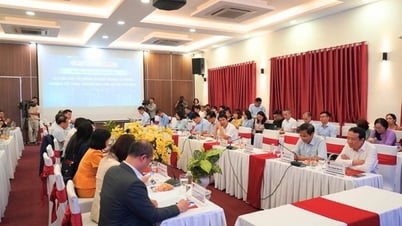


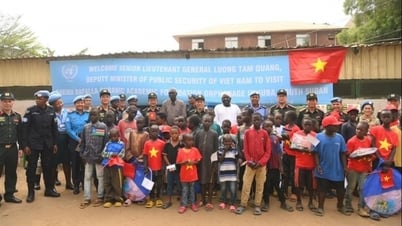










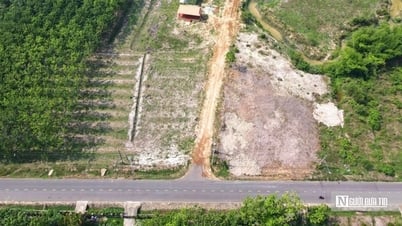


![[Photo] General Secretary To Lam receives Chief of the Central Office of the Lao People's Revolutionary Party](https://vphoto.vietnam.vn/thumb/1200x675/vietnam/resource/IMAGE/2025/5/30/140435f4b39d4599a3d17975dfb444c5)








































































Comment (0)